
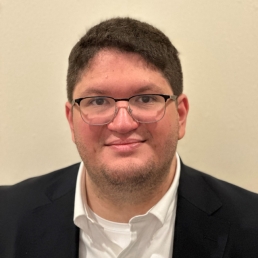
Alexander Linder, MSc, MA
Mr. Linder is a doctoral student in the Department of Environmental Health and Engineering (Health Security Track) at Johns Hopkins Bloomberg School of Public Health. His primary research interests include biosafety, biosecurity, data management and analysis, foreign policy related to emerging threats, and crisis management in the health and security domains.
Prior to joining the Center, Mr. Linder served as a Junior Scientist at the Georgetown Center for Global Health Science and Security, where he acted as a subject matter expert on multiple government-funded awards related to biosecurity and provided expertise and logistical support for various grants and programs focused on health security infrastructure, biological and chemical incident response, and compliance with IHR monitoring and evaluation.
Mr. Linder earned a Master of Science in biohazardous threat agents and emerging infectious diseases from Georgetown University and a Master of Arts in security studies from the Walsh School of Foreign Service at Georgetown.
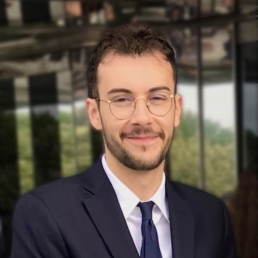
Augustin Martin, MSc
Mr. Martin is a doctoral student in the Department of Environmental Health and Engineering (Health Security Track) at Johns Hopkins Bloomberg School of Public Health.
Prior to beginning his doctoral studies, Mr. Martin worked as a research intern in the Virus and Immunity Unit at Institut Pasteur, where he examined viral entry mechanisms. Previously, he worked at Imperial College London on SARS-CoV-2 epidemiology and at the French Ministry of Health. At the French ministry, he was involved in the development of the sustainability plan for the European Joint Action on Vaccination, a project aimed at strengthening tools and policies for the fight against vaccine-preventable diseases in Europe.
Mr. Martin holds an MSc in virology from Université Paris Cité and an MPP in global health policies from Sciences Po Paris. He received a BA in political science from Sciences Po Paris and a BSc in biology from Sorbonne Université.
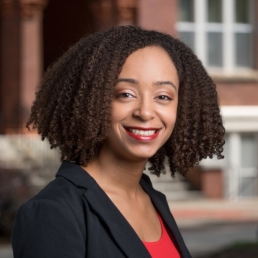
Dionne Mitcham, MPH
Ms. Mitcham is a doctoral student in the Department of Environmental Health and Engineering (Health Security Track) at Johns Hopkins Bloomberg School of Public Health. Ms. Mitcham’s research interests include public health preparedness and response, emergency management, risk analysis, and mass gatherings.
Prior to beginning her doctoral studies, Ms. Mitcham completed a 2-year preparedness and response focused ORISE Fellowship at the Centers for Disease Control and Prevention’s (CDC) Division of Global Migration and Quarantine (DGMQ) in Atlanta, GA, where she assisted with response efforts for 5 public health emergencies. Ms. Mitcham’s work within DGMQ sparked her interest in health security and global catastrophic biological risks (GCBRs). In addition to her time at CDC, Ms. Mitcham interned with the Federal Emergency Management Agency (FEMA) during the completion of her master’s degree.
Ms. Mitcham received an MPH in disaster management from the University of Georgia and a BS in public health from Texas A&M University.
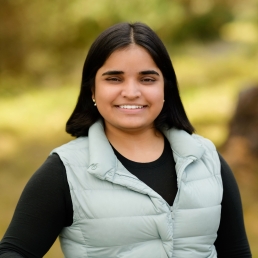
Shrestha Rath
Ms. Rath is a doctoral student in the Department of Environmental Health and Engineering (Health Security Track) at Johns Hopkins Bloomberg School of Public Health. Her research interests focus on safeguarding growing bioeconomies in the Global South. Previously, Ms. Rath worked at the Asia Centre for Health Security, advancing nucleic acid synthesis screening efforts in Asia.
Prior to specializing in biosecurity policy and governance, Ms. Rath worked extensively with the open science, citizen science, and synthetic biology communities. She is a former UNODA Youth for Biosecurity Fellow and served as part of the Youth Delegation at the 9th Review Conference of the Biological and Toxin Weapons Convention. She holds dual Bachelor of Science and Master of Science degrees in biological sciences from the Indian Institute of Science Education and Research (IISER) in Bhopal, India.
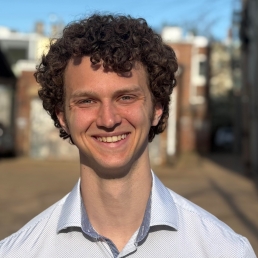
Adin Richards
Mr. Richards is a doctoral student in the Department of Environmental Health and Engineering (Health Security Track) at Johns Hopkins Bloomberg School of Public Health.
Prior to beginning his studies, Mr. Richards worked as a Research Fellow on the Biosecurity and Pandemic Preparedness team at Coefficient Giving, where he researched how to leverage emerging biodefense technologies to respond to future biological risks. Before his time at Coefficient Giving, Mr. Richards was a Biotechnology Fellow at the Institute for Progress, working mostly on U.S. Agriculture Policy. Mr. Richards has also worked as a freelance consultant on emergency preparedness, and as a research assistant in a paleoclimate lab at Brown University.
Mr. Richards received Bachelor of Arts degrees in geology-biology and in public health from Brown University.
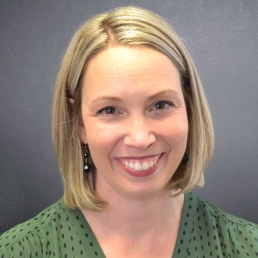
Teri Schlanser, DVM, MPH, DACVPM (Epidemiology)
Dr. Schlanser is a doctoral student in the Department of Environmental Health and Engineering (Health Security Track) at Johns Hopkins Bloomberg School of Public Health. Her dissertation research focuses on One Health preparedness and response for high-consequence animal diseases.
Dr. Schlanser is also a Lieutenant Colonel in the U.S. Army Veterinary Corps. Prior to her doctoral studies, Dr. Schlanser served as the Executive Officer for the U.S. Army Veterinary Corps Chief, where she assisted in coordination and communication of strategic initiatives for veterinary medicine, public health, and food safety/defense across Department of Defense agencies. She received a Doctor of Veterinary Medicine from Mississippi State University and an MPH in One Health from the University of Washington. She holds dual board certification in veterinary preventive medicine and epidemiology by the American College of Veterinary Preventive Medicine.
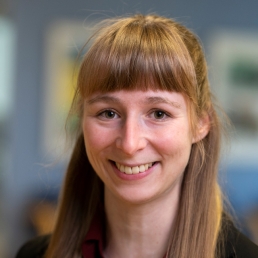
Annie Sundelson, PhD, MSc
Dr. Sundelson is a doctoral student in the Department of Environmental Health and Engineering (Health Security Track) at Johns Hopkins Bloomberg School of Public Health. Her research interests pertain to health security in the context of the former Soviet Union. Her dissertation research focuses on the nature and consequences of Russian state-sponsored disinformation about biological weapons.
Prior to starting her doctoral studies, Dr. Sundelson was a research assistant at the Columbia Mailman School of Public Health, where she worked on an NIH-funded study of HIV-related risk behavior among men who have sex with men in the US. She has professional working proficiency in Russian and spent a year abroad in Almaty, Kazakhstan, where she interned at a local cardiology clinic.
Dr. Sundelson received an MSc in reproductive and sexual health research from the London School of Hygiene and Tropical Medicine (LSHTM) and a BA in Russian language and literature from the University of California, Los Angeles (UCLA).
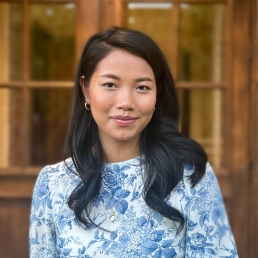
Biak Tial, MSc
Ms. Tial is a doctoral student in the Department of Environmental Health and Engineering (Health Security Track) at Johns Hopkins Bloomberg School of Public Health. Her interests include biotechnology innovation to support the development of medical countermeasures and applying economics to mitigate global catastrophic biological risks.
She previously worked at Alvea, where she developed quality systems to support the development of pandemic vaccines. She has pursued research in antimicrobial R&D policy and catastrophic risk preparedness, assessing both market mechanisms and infrastructure vulnerabilities. Her earlier work spans interdisciplinary and applied research on trust in healthcare, opioid treatment access, and care coordination for safety-net populations, using participatory and mixed methods to inform community and policy impact.
She holds an MSc in Health Systems and Services Research from Boston University and a BA in Public Health from Austin College.
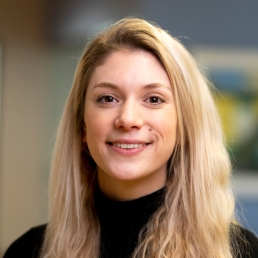
Caitlin Walker
Ms. Walker is a doctoral student in Department of Environmental Health and Engineering (Health Security Track) at Johns Hopkins Bloomberg School of Public Health. Prior to beginning her doctoral studies, Caitlin worked as a Senior Health Analyst for the UK Health Security Agency. Previously, she has worked with Public Health England and interned with the United Nations Joint Programme on HIV/AIDS (UNAIDS).
Ms. Walker holds a BA in biological natural sciences from the University of Cambridge.
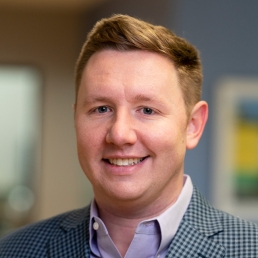
Matthew E. Walsh
Mr. Walsh is a doctoral student in the Department of Environmental Health and Engineering (Health Security Track) at Johns Hopkins Bloomberg School of Public Health and a member of the 2018 cohort of the Emerging Leaders in Biosecurity Initiative (ELBI). His dissertation work focuses on the impacts of artificial intelligence and biotechnology on the biological threat landscape.
Previously, he was Associate Staff in the Biological and Chemical Technologies group at MIT Lincoln Laboratory (MIT LL), a Department of Defense Research and Development Laboratory. He established a technical program at MIT LL to develop and apply machine learning methods to engineering biology with a focus on rapid medical countermeasures and antibody-based therapeutics. Mr. Walsh also has supported work in biosensor development, threat attribution, warfighter health, and biological data assurance. Prior to MIT LL, he worked at MassBiologics of the University of Massachusetts Medical School, developing assays for the characterization of therapeutic monoclonal antibody production.
Mr. Walsh received a BA in chemistry from Skidmore College.
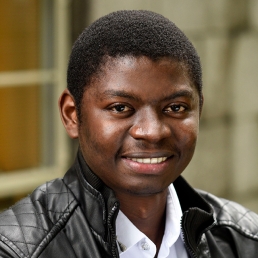
Brian Ngongheh Ajong, MD, MPH
Dr. Ajong is a DrPH student in the Department of Environmental Health and Engineering (Health Security Track) at Johns Hopkins Bloomberg School of Public Health. A physician by training, he is passionate about strengthening emergency preparedness and response to epidemic- and pandemic-prone diseases in fragile and conflict-affected settings (FCAS). Dr. Ajong is currently an epidemiologist with the Acute Events Epidemiology team of the WHO Health Emergencies Programme. Having occupied clinician and humanitarian roles at the Red Cross, Medair, IOM, and now WHO, he has contributed to the public health responses for several disease outbreaks, including Ebola, cholera, measles, mpox, and COVID-19. He has field experience in FCAS in sub-Saharan Africa, specifically Cameroon, South Sudan, and Democratic Republic of the Congo.
Dr. Ajong holds an MPH from the London School of Hygiene and Tropical Medicine and an MD from the University of Buea.

Oluwayemisi (Yemisi) Ajumobi, MPH, MS
Ms. Ajumobi is a DrPH student in the Department of Environmental Health and Engineering (Health Security Track) at Johns Hopkins Bloomberg School of Public Health. Her research interests include improving risk analysis of the spillover, emergence, and spread of environmentally driven emerging and re-emerging infectious disease (EID) pathogens. Ms. Ajumobi is also working on a full-time visiting fellowship focused on advising on policy solutions that enable the appropriate use of NextGen sequencing technologies for environmental monitoring and early warning about EID pathogens and the development of effective antimicrobial drugs. She worked for several years with the World Bank’s Health, Nutrition and Population Global Practice, where she provided technical, operational, and policy advice to country governments on enhancing health security capacities of countries across sub-Saharan Africa and South Asia.
Ms. Ajumobi holds an MPH in epidemiology and global health from Columbia University and a BS in biochemistry from the University of Lagos. She is also a 2019 ELBI Fellowship alumna and a graduate of the Risk Sciences and Public Policy Certification Program at Johns Hopkins University.
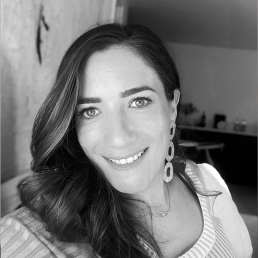
Aurelia Floriane Attal-Juncqua, MSc
Ms. Attal-Juncqua is a doctoral student in the Department of Environmental Health and Engineering (Health Security Track) at Johns Hopkins Bloomberg School of Public Health.
Currently, she is a biosecurity policy researcher at RAND, focusing on biosecurity, the bioeconomy, emerging biotechnologies, and biodefense policy. Previously, she was a Horizon Fellow at the Johns Hopkins Center for Health Security. Ms. Attal-Juncqua also served as a program officer at the National Academies of Sciences, Engineering, and Medicine (NASEM), where she played a key role in COVID-19 rapid response efforts. For her contributions to the Standing Committee on Emerging Infectious Diseases and other 21st Century Health Threats during the pandemic, she received the NASEM Health and Medicine Division "Spot Award." Additionally, she led projects on vaccine allocation and US public health preparedness in the context of catastrophic disasters.
Before NASEM, Ms. Attal-Juncqua was a senior research associate at Georgetown University’s Center for Global Health Science and Security, working on projects related to the Biological Weapons Convention and post-Ebola health security efforts in Guinea. Her experience also includes roles as a business analyst in the pharmaceutical industry in London and as a research intern for the World Health Organization.
She holds an MSc in control of infectious diseases from the London School of Hygiene & Tropical Medicine and a BSc in biology and microbiology from Imperial College London.
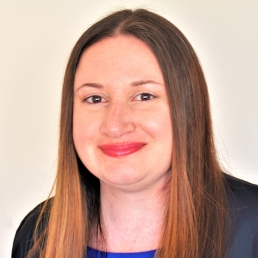
Jaymie Brooks Dumproff, MS, MPH
Mrs. Brooks Dumproff is a doctoral student in the Department of Environmental Health and Engineering (Health Security Track) at Johns Hopkins Bloomberg School of Public Health. Her research interests pertain to the Air and Army National Guard’s roles in public health emergencies.
Mrs. Brooks Dumproff currently serves as a full-time Public Health Officer for the Air National Guard’s Office of the Air Surgeon (ANG/SG) at Joint Base Andrews, Maryland. In this role, she serves as the infectious disease and public health emergency liaison for the 90 ANG Medical Groups across all 54 US states and territories. She also serves as a town Planning Commissioner in Lovettsville, VA, where she assists with reviewing and voting on town comprehensive plans and zoning ordinances.
Mrs. Brooks Dumproff received an MPH from Nova Southeastern University, Florida. She received an MS and BSE in exercise science and health promotion from Florida Atlantic University.
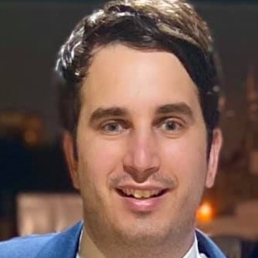
Matthew Bursley, MPH, PEM
Mr. Bursley is a part-time DrPH student in the Department of Environmental Health and Engineering (Health Security Track) at the Johns Hopkins Bloomberg School of Public health. His interests center around creating stronger collaborations between emergency management and epidemiology during public health emergencies.
Mr. Bursley is an environmental epidemiologist with the Michigan Department of Health and Human Services (MDHHS) Division of Environmental Health. He leads the Division's environmental public health emergencies and time-critical actions capabilities program. He is a member of the Council of State and Territorial Epidemiologists (CSTE) and regularly participates in their Disaster Epidemiology Subcommittee activities.
He received an MPH in occupational and environmental epidemiology from the University of Michigan School of Public Health. He also holds a BA in biology from Anderson University (Anderson, IN) and is certified as a Professional Emergency Manager (PEM) by Michigan State Police, Emergency Management and Homeland Security Division (MSP/EMHSD).
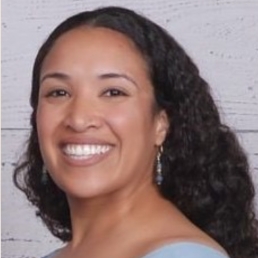
Samantha Calabrese, MPH
Ms. Calabrese is a DrPH student in the Department of Environmental Health and Engineering (Health Security Track) at Johns Hopkins Bloomberg School of Public Health. Her interests include research related to infectious disease surveillance; epidemiology; and associated coinfections and threats in infants, children, adolescents, pregnant people, and women. She is particularly interested in data generation and reporting for emerging infections.
She currently works at the Eunice Kennedy Shriver National Institute of Child Health and Development (NICHD) in the Maternal and Pediatric Infectious Disease Branch (MPIDB). Her work supports and coordinates domestic and international research and training in HIV, congenital infections, and vaccine-preventable diseases. Prior to joining NICHD, she was a 2016 Summer Internship Program (SIP) fellow in the Social and Behavioral Research Branch (SBRB) at the National Human Genome Research Institute (NHGRI).
Ms. Calabrese received her BS in public health sciences from the University of Massachusetts, Amherst, and an MPH from Northeastern University in Boston.
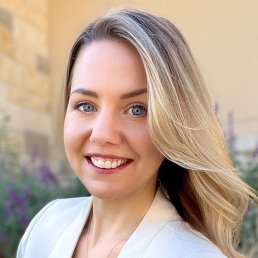
Jessica Cargill, MPH
Ms. Cargill is a doctoral student in the Department of Environmental Health and Engineering (Health Security Track) at Johns Hopkins Bloomberg School of Public Health. Her dissertation focuses on improving biosecurity practices among poultry vendors in noncommercial animal markets through the exploration of producer knowledge, attitudes, and risk perceptions around regulations and infectious disease.
She is currently the Director of Evaluation at the Texas Health Institute and previously served as the Assistant Director of the Institute for Infectious Animal Diseases at Texas A&M University. She holds an MPH in community health sciences and a BA in anthropology, both from Texas A&M.
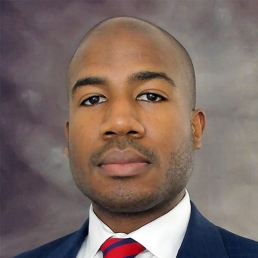
Roberto Henry, MPH
Mr. Henry is a doctoral student in the Department of Environmental Health and Engineering (Health Security Track) at Johns Hopkins Bloomberg School of Public Health. His dissertation research examines the operation of public schools during the COVID-19 pandemic. Mr. Henry currently serves as a policy analyst within CDC’s new Center for State, Tribal, Local, and Territorial Public Health Infrastructure and Workforce.
He began his public health career as a CDC Public Health Associate assigned to the Kanawha-Charleston Health Department in Charleston, West Virginia, where he supported their infectious disease epidemiology and emergency preparedness activities. Following this assignment, Roberto served as the Special Assistant to the Director of CDC’s Office of Public Health Preparedness and Response, and then for the Director of the Center for Surveillance, Epidemiology, and Laboratory Services. Throughout his career, Mr. Henry has participated in several emergency responses, including for Ebola, Zika, and COVID-19.
Mr. Henry earned a BS in biology and an MPH from the University of Connecticut.

Heather Hill, MS
Ms. Hill is a DrPH student in the Department of Environmental Health and Engineering (Health Security Track) at Johns Hopkins Bloomberg School of Public Health.
Born and raised in the St. Louis, Missouri, area, Ms. Hill attended Colorado State University, graduating in 1993 with a Bachelor of Science degree in biological sciences. She then joined the US Army and was employed in a biological research capacity, working in a blood storage laboratory for 9 years. She conducted clinical trials and performed bench work, the first half as active duty and the second half as a civilian contractor. During this time, Ms. Hill earned a master's degree in environmental biology from Hood College. In 2002, she began work as a data manager for clinical research trials at Emmes, now holding the position of Vice President, Vaccines and Infectious Diseases.

J. Sam Hurley, MPH, EMPS, NRP
Mr. Hurley is a doctoral student in the Department of Environmental Health and Engineering (Health Security Track) at Johns Hopkins Bloomberg School of Public Health. His research interests focus on the intersection of emergency medical services (EMS) and public health.
In addition to his studies, Mr. Hurley serves full time as the State of Maine EMS Director, holding that position since October 2019. Prior to Maine, Mr. Hurley served as the EMS Program Manager for the District of Columbia. Mr. Hurley has worked in the EMS field since 2007 in various roles, from emergency medical technician (EMT) to paramedic training officer.
Mr. Hurley received an MPH in health policy and management from Emory University’s Rollins School of Public Health, a master's degree in emergency and disaster management from Georgetown University, and a BS in biology from the University of North Carolina at Chapel Hill. Mr. Hurley maintains his national certification as a clinical paramedic (NRP).
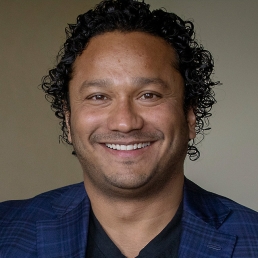
Roshan Khatri, MBBS, MPH
Dr. Khatri is a doctoral student in the Department of Environmental Health and Engineering (Health Security Track) at Johns Hopkins Bloomberg School of Public Health. He received his medical degree in 2010 in Nepal and earned an MPH in global health from the University of Washington, Seattle, as a Fulbright Scholar.
Dr. Khatri has a passion for improving public health globally and shaping public health interventions, from advocating for refugees to creating programs for young girls and women against human trafficking. He has played a leadership role in numerous public health projects in limited-resource settings around the world, including in Nepal, Haiti, Liberia, Sierra Leone, Ethiopia, and in the refugee camps of Jordan and Greece.
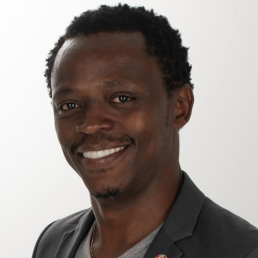
Landry Ndriko Mayigane, DVM, MSc AppEpi, CEM
Dr. Mayigane is pursuing a DrPH in the Department of Environmental Health and Engineering (Health Security Track) at Johns Hopkins Bloomberg School of Public Health (BSPH). He currently serves as Acting Unit Head for the WHO Health Emergencies Programme's Country Simulation Exercises and Reviews unit in Geneva, where he leads WHO global efforts to strengthen International Health Regulations (2005) core capacities through emergency response reviews and simulation exercises.
Recognized by the African Union with a Medal of Service to Humanity for his commendable role in controlling the West Africa Ebola outbreak, Dr. Mayigane showcased bravery and leadership, leading a large team of 120 health professionals during the acute crisis. He is a certified emergency manager and has engaged in various roles with the US CDC and State Department. His educational background includes a veterinary medicine doctorate and a master's degree in applied epidemiology from notable universities in Senegal and Rwanda, respectively.
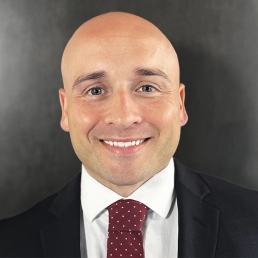
Matt McGrath, MPH
Lieutenant Commander McGrath is a doctoral student in the Department of Environmental Health and Engineering (Health Security Track) at Johns Hopkins Bloomberg School of Public Health. His research interests pertain to health security in the context of defense and military affairs.
He is a US Navy officer currently stationed in Washington, DC, where his work is focused on Homeland Defense and Defense Support of Civil Authorities. His previous assignments include the 13th Marine Expeditionary Unit, 1st Medical Battalion, and US Naval Hospital Yokosuka, Japan. He has completed deployments with Special Purpose Marine Air-Ground Task Force – Crisis Response – Central Command and aboard USNS MERCY in support of Pacific Partnership 2015.
He holds an MPH in epidemiology from Boston University and a BA from the University of Connecticut and is a graduate of the USMC Expeditionary Warfare School.
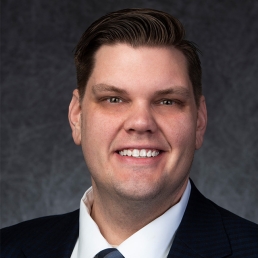
Cody Minks, MPH, MA
Mr. Minks is a doctoral student in the Department of Environmental Health and Engineering (Health Security Track) at Johns Hopkins Bloomberg School of Public Health and a Senior Biothreat Reduction Specialist for Noblis, supporting health security work for the US government. Previously, Mr. Minks was an Emergency Management Program Manager for SSM Health, helping lead the hospital system’s response to COVID-19. Additionally, he served as the regional public health emergency planner, where he led planning efforts for the CDC’s Cities Readiness Initiative in the St. Louis, Missouri, metropolitan area. Mr. Minks is a member of the 2019 cohort of the Johns Hopkins Center for Health Security’s Emerging Leaders in Biosecurity Initiative (ELBI). Mr. Minks’ research interest focuses on US readiness for events of agroterrorism.
Mr. Minks earned a Bachelor of Science in environmental science from Southeast Missouri State University, a Master of Public Health in veterinary public health from the University of Missouri, and a Master of Arts in security studies from the Naval Postgraduate School.
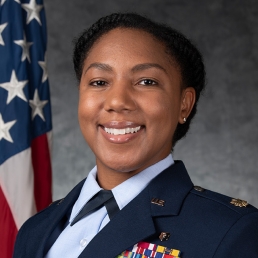
Gabrielle Moore, MPH, CPH
Ms. Moore is a doctoral student in the Department of Environmental Health and Engineering (Health Security Track) at Johns Hopkins Bloomberg School of Public Health. Her research interests pertain to biosecurity, risk sciences, and community resilience. She is particularly interested in biosecurity risk assessment practices to drive change in policy.
Ms. Moore began her career in public health through direct commissioning into the United States Air Force (USAF). She currently serves on active duty as a public health officer. In this role, she develops, plans, and implements public health programs for the USAF bases and locations where she is assigned to create and sustain resilient and ready service members and healthy families. She has worked in multiple states within the US and abroad in East Asia, Southwest Asia, and Europe.
Ms. Moore received an MPH in epidemiology from the University of South Florida – Tampa (USF) and a BS in biology from Christopher Newport University (CNU).

Krystal L. Murphy, Colonel, USAF (ret), MS, CIH
Colonel Murphy is pursuing a DrPH in the Department of Environmental Health and Engineering (Health Security Track) at Johns Hopkins Bloomberg School of Public Health (BSPH). She currently is the Safety and Compliance Division Director for Advanced Test Reactor Programs at Idaho National Laboratory (INL). In 2020, she retired from her final US Air Force assignment as Deputy Command Surgeon for the United States Africa Command.
During her Air Force career, Colonel Murphy commanded a medical squadron (multi-practice clinic) and a medical group (hospital) and served as the 7th Air Force Surgeon General during the Korean MERS epidemic and a political crisis involving potentially viable anthrax samples. She was the Global Synchronization Branch Chief at the United States Strategic Command's Center for Combating WMD, and during a different assignment, she served as administrator for the elite Air Force Radiation Assessment Team. She is a Certified Industrial Hygienist.
Colonel Murphy is a distinguished graduate of the Air Force Academy, where she received a BS in biology. She obtained an MS in zoology from Arizona State University.
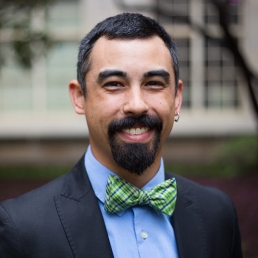
Jonathan Nagata
Mr. Nagata is a DrPH student in the Department of Environmental Health and Engineering (Health Security Track) at Johns Hopkins Bloomberg School of Public Health. His research interests revolve around decision making and risk communication in health security incidents, with a particular focus on radiological emergencies.
Mr. Nagata is a physical scientist at the US Environmental Protection Agency (EPA) in the Radiation Protection Division, based in Washington, DC. His professional work portfolio includes developing radiological risk assessment tools, risk communication, and contributing to EPA’s emergency preparedness and response efforts. He has supported federal responses, including to Hurricanes Irma and Maria, the COVID-19 pandemic, and the East Palestine train derailment.
He holds a Master of Science in environmental health, a Master of Public Administration from the University of Washington, and a BS in molecular environmental biology from UC Berkeley.

Victoria Osasah, MPH
Ms. Osasah is a doctoral student in the Department of Environmental Health and Engineering (Health Security Track) at Johns Hopkins Bloomberg School of Public Health. Her research interest is in health security with a focus on the impact of climate change on the environmental and occupational risks of infectious diseases among marginalized populations. Her current interest is in assessing the risk of vector borne diseases among migrant and seasonal farmworkers in the US.
Prior to beginning her doctoral studies, Ms. Osasah worked at Public Health Ontario as a sub-section Epidemiologist Lead during the COVID-19 pandemic. Previously, Ms. Osasah worked at the NYU Langone Medical Center and at the Florida Department of Health during the Zika epidemic. Ms. Osasah holds an MPH in epidemiology from the Icahn School of Medicine at Mount Sinai.
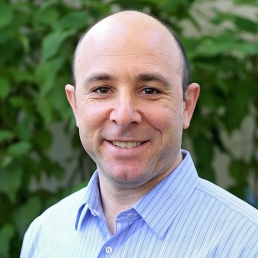
Aaron Resnick, MA
Mr. Resnick is a DrPH student in the Department of Environmental Health and Engineering (Health Security Track) at Johns Hopkins Bloomberg School of Public Health. He is a health security and emergency preparedness professional and the incoming director of biocontainment unit services for MedStar Washington Hospital Center in Washington, DC, a federally designated Regional Emerging Special Pathogens Treatment Center. He has most recently consulted for the National Academy of Medicine’s Forum on Medical and Public Health Preparedness for Disasters and Emergencies and the University of Nebraska Medical Center’s Global Center for Health Security. He currently serves as a mass gatherings consultant to the World Health Organization’s Border Health and Mass Gatherings Unit.
Aaron previously served as the planning and preparedness manager for the Northwest Healthcare Response Network, the healthcare emergency preparedness coalition for Western Washington State, where his responsibilities included managing regional and statewide projects such as healthcare infectious disease sustainment and hospital surge capacity. During the COVID-19 pandemic response, Aaron served in multiple roles including as coalition operations section chief and the first healthcare liaison to the Washington State Department of Health incident management team. Prior to his coalition role, Aaron was the emergency preparedness coordinator at Inova Fairfax Hospital in Falls Church, VA, a Level I Trauma and Pediatric Center and Northern Virginia’s largest hospital.
Aaron has presented at state, regional, and national conferences on topics ranging from infectious disease preparedness to hospital capacity challenges. He was a 2018 Emerging Leaders in Biosecurity Initiative Fellow with the Johns Hopkins Center for Health Security. He holds a BA in diplomacy and world affairs from Occidental College in Los Angeles and an MA in war studies from King’s College London.
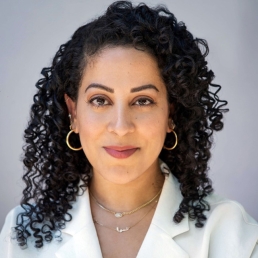
Jessica Malaty Rivera, MS
Ms. Rivera is a doctoral student in the Department of Environmental Health and Engineering (Health Security Track) at Johns Hopkins Bloomberg School of Public Health. Her research interests include emerging infectious disease surveillance, public health policy, and vaccine advocacy. She is particularly interested in infodemiology as it relates to trust in public health systems and medical misinformation.
Ms. Rivera is an infectious disease epidemiologist and science communicator. Prior to enrolling in the DrPH program, she was the Science Communication Lead at the COVID Tracking Project at The Atlantic. Currently, she is the Senior Science Communication Advisor at the de Beaumont Foundation, a Research Associate at the Center for Health Security, and a Research Fellow at Boston Children’s Hospital Innovation & Digital Health Accelerator.
Ms. Rivera holds an MS in biohazardous threat agents and emerging infectious diseases from Georgetown University and a BS in health promotion and disease prevention studies from the University of Southern California.

Mary E. Sabados, MAS, BSN, EMT-P
Mrs. Sabados is a DrPH student in the Department of Environmental Health and Engineering (Health Security Track) at Johns Hopkins Bloomberg School of Public Health. Her research interests include infectious disease surveillance in the setting of climate events and population migration behavior.
Mrs. Sabados is a Flight Nurse Specialist with Michigan Medicine Survival Flight. She provides critical care air medical services throughout the US. Mrs. Sabados has also served as a nurse/medic in Haiti, Nepal, Poland, and for SMURD, an air and ground emergency rescue system in Romania. She has taught trauma EMS for various Naval medical units in Michigan. Mrs. Sabados is the Medical Advisory Chair of Nepal Medics, a US-Nepal NGO that collaborates with the Government of Nepal to establish a national EMS system. She also works with Kisoro Habitat for Humanities in Uganda to address food security challenges among the Batwa Indigenous community.
Mrs. Sabados holds an MAS in global health planning and management from Johns Hopkins School of Public Health and a BSN from Eastern Michigan University. She is a member of the Alpha chapter of the Delta Omega Public Health Honorary Society and was recently awarded the Timothy Baker Award for International Health Development.
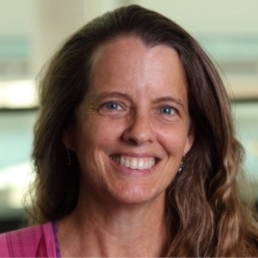
Elizabeth Serlemitsos, MBA, MPH
Ms. Serlemitsos is a doctoral student in the Department of Environmental Health and Engineering (Health Security Track) at Johns Hopkins Bloomberg School of Public Health (BSPH). Her research interests focus on applications of social and behavior change theory and practice to public health threats.
Ms. Serlemitsos also works at BSPH in the Center for Communication Programs, where she directs a USAID-funded, 8-year global project on social and behavior change, Breakthrough ACTION. She has worked in global health for more than 30 years, most while living in Africa. She has led risk communication, social mobilization, and behavior change programs addressing epidemics including HIV in southern Africa in the mid-1990s, Ebola in West Africa in 2014-2016, Zika in Latin American and the Caribbean in 2017-2019, and most recently during the COVID-19 pandemic globally. Ms. Serlemitsos has an MBA from Yale University, an MPH from Boston University, and a BA from Middlebury College.
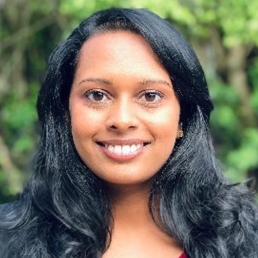
Shalini Singaravelu, MSc
Ms. Singaravelu is a DrPH student in the Department of Environmental Health and Engineering (Health Security Track) at Johns Hopkins Bloomberg School of Public Health.
She works as a Program Officer at the National Academies of Sciences, Engineering, and Medicine where she supports the Forum on Medical and Public Health Preparedness for Disasters and Emergencies and the Standing Committee on Emerging Infectious Diseases and 21st Century Health Threats. Before joining the Academies, Ms. Singaravelu oversaw a portfolio of digital health tools at IBM. From 2015 to 2019, she supported health emergency preparedness and response as a consultant at WHO. Prior to this, she worked on psychosocial support programs for HIV-affected children in South Africa.
Ms. Singaravelu completed an MSc global mental health from the London School of Hygiene and Tropical Medicine and BA in anthropology from Union College. She was an Emerging Leader in Biosecurity (ELBI) Fellow at Johns Hopkins University Center for Health Security in 2022, and she holds a graduate certificate in Risk Sciences and Public Policy from Hopkins.
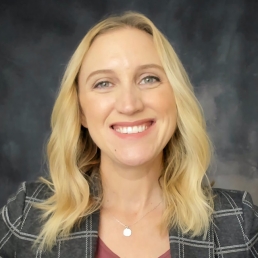
Brittany Sunshine
Ms. Sunshine is a DrPH student in the Department of Environmental Health and Engineering (Health Security Track) at Johns Hopkins Bloomberg School of Public Health. Her research focuses on decision-making during public health emergencies.
She currently works as a Senior Public Health Analyst in the National Center for Emerging and Zoonotic Infectious Diseases (NCEZID) at the Centers for Disease Control and Prevention (CDC) in the Operational Readiness and Response Office. Since coming to CDC in 2014, Ms. Sunshine has held positions in the Office of Readiness and Response, Center for Global Health, and NCEZID’s Division of Preparedness for Emerging Infections. She has served on many public health preparedness responses, including for the 2014 and 2018 Ebola outbreaks, the 2015–2016 Zika epidemic, Hurricane Maria, the COVID-19 pandemic, the 2022 Haiti cholera outbreak, and the Department of Homeland Security’s Operations Allies Welcome initiative. Before coming to CDC, she worked at the University of Maryland Center for Health and Homeland Security, Center for Disaster and Humanitarian Assistance Medicine, and the Armed Forces Health Surveillance Division.
Ms. Sunshine graduated from Johns Hopkins Bloomberg School of Public Health with a Master of Public Health in 2014 and from Dickinson College in 2009 with a BA in anthropology.
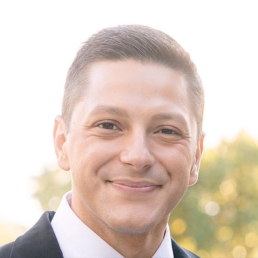
John Paul "JP" Tarangelo, MS, PMP
Mr. Tarangelo is a doctoral student in the Department of Environmental Health and Engineering (Health Security Track) at Johns Hopkins Bloomberg School of Public Health. Since 2017, he has worked as a federal contractor through G2 Global Solutions supporting the US Department of Health and Human Services (HHS) Administration for Strategic Preparedness and Response (ASPR). His work focuses on countering biological threats and advancing national health security capabilities.
Previously, Mr. Tarangelo completed internship rotations at the US Department of State’s Office of International Health and Biodefense and HHS’s Office of Global Affairs while pursuing his master’s degree full-time. In 2023, he was named to Out in National Security’s Out Leaders List, which highlights LGBTQIA+ individuals working in national security or foreign policy.
Mr. Tarangelo holds an MS in public health microbiology and emerging infectious diseases from George Washington University and a BS from the University of Miami.
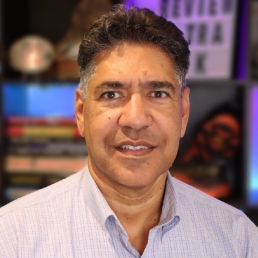
Juan I. Ubiera, MSc, MPH
Mr. Ubiera is a doctoral student in the Department of Environmental Health and Engineering (Health Security Track) at Johns Hopkins Bloomberg School of Public Health.
He is a former US Air Force Public Health Officer with various stateside assignments and tours overseas. He is currently Chief, Integrated Biosurveillance Branch at the Defense Health Agency, Armed Forces Health Surveillance Division, where he continues to work on global and public health issues.
Mr. Ubiera received an MPH in epidemiology/biostatistics from Boston University, and an MSc from US Air Force Air University, Air Command and Staff College.
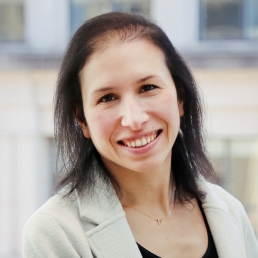
Alexandra Woodward, DrPH
Dr. Woodward recently completed her DrPH in the Department of Environmental Health and Engineering (Health Security Track) at Johns Hopkins Bloomberg School of Public Health. Her doctoral work focused on the role of public health policy in building and sustaining contact tracing programs in the US.
Prior to and during her doctoral studies, Dr. Woodward worked for the Global Emerging Infections Surveillance (GEIS) program within the US Department of Defense (DoD), where she facilitated the communication and use of global infectious disease surveillance data to protect the health of DoD personnel and support broader global health security. More recently, Dr. Woodward has been working with The Pew Charitable Trusts to improve the exchange of public health data between healthcare providers and public health agencies. She holds an MPH in infectious disease epidemiology from Columbia University and a BA in political science, public health, and French from the University of Rochester.
